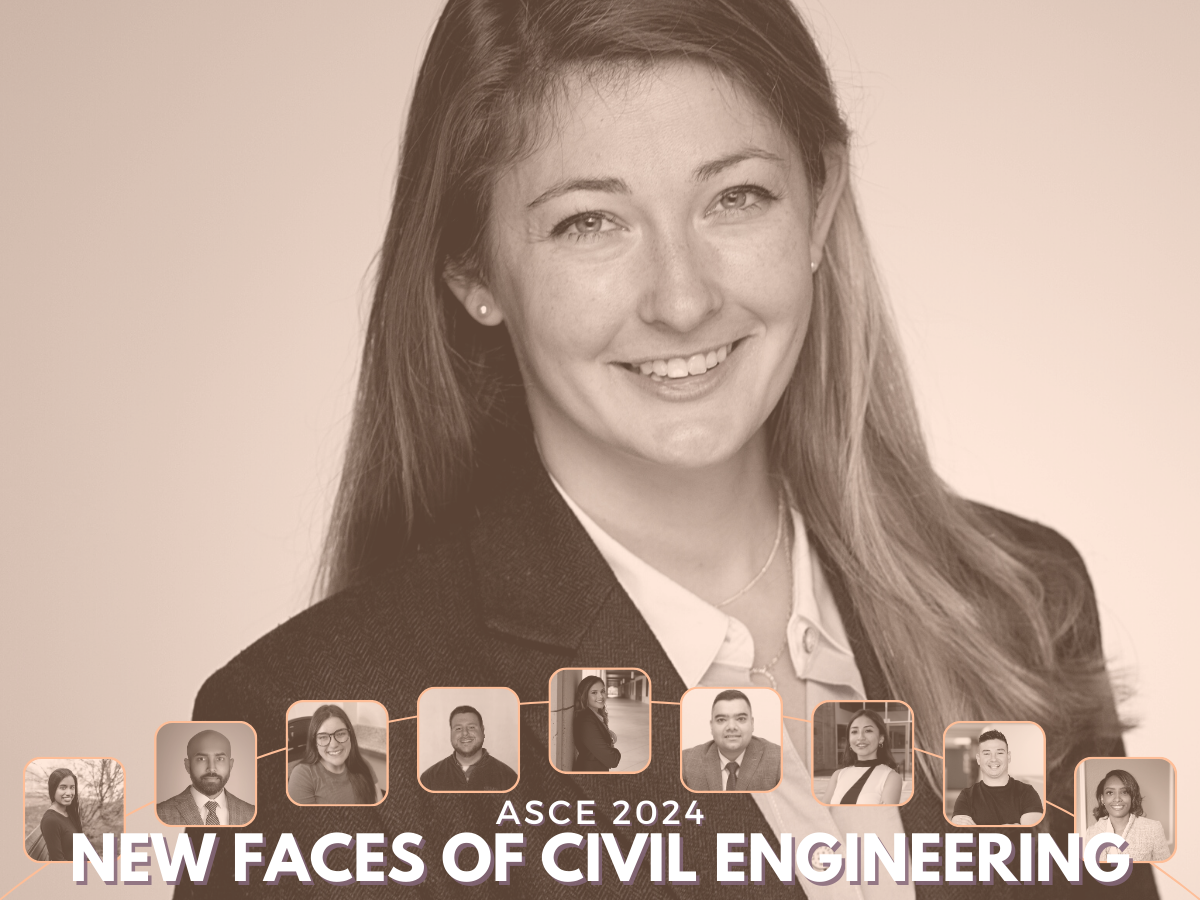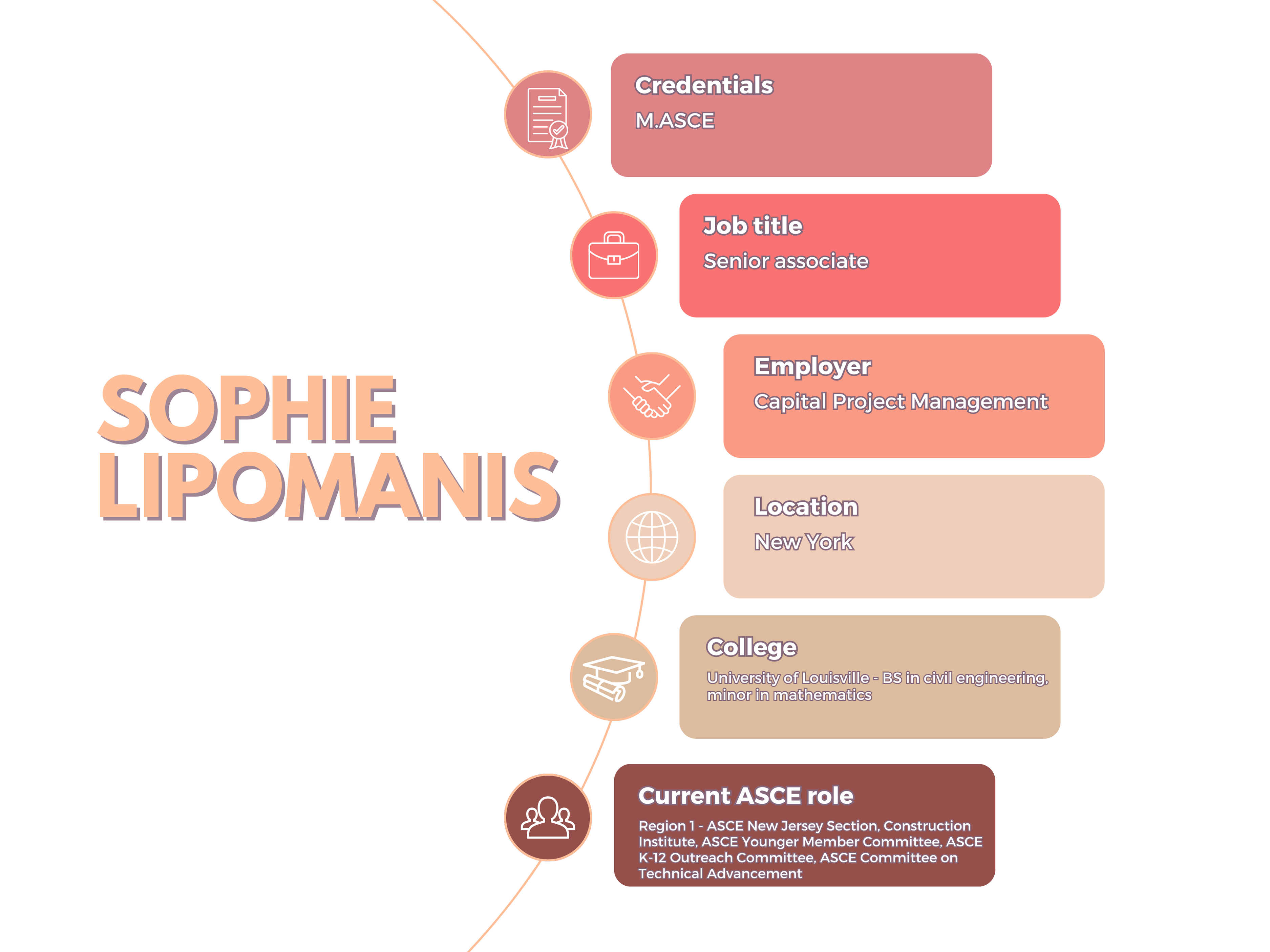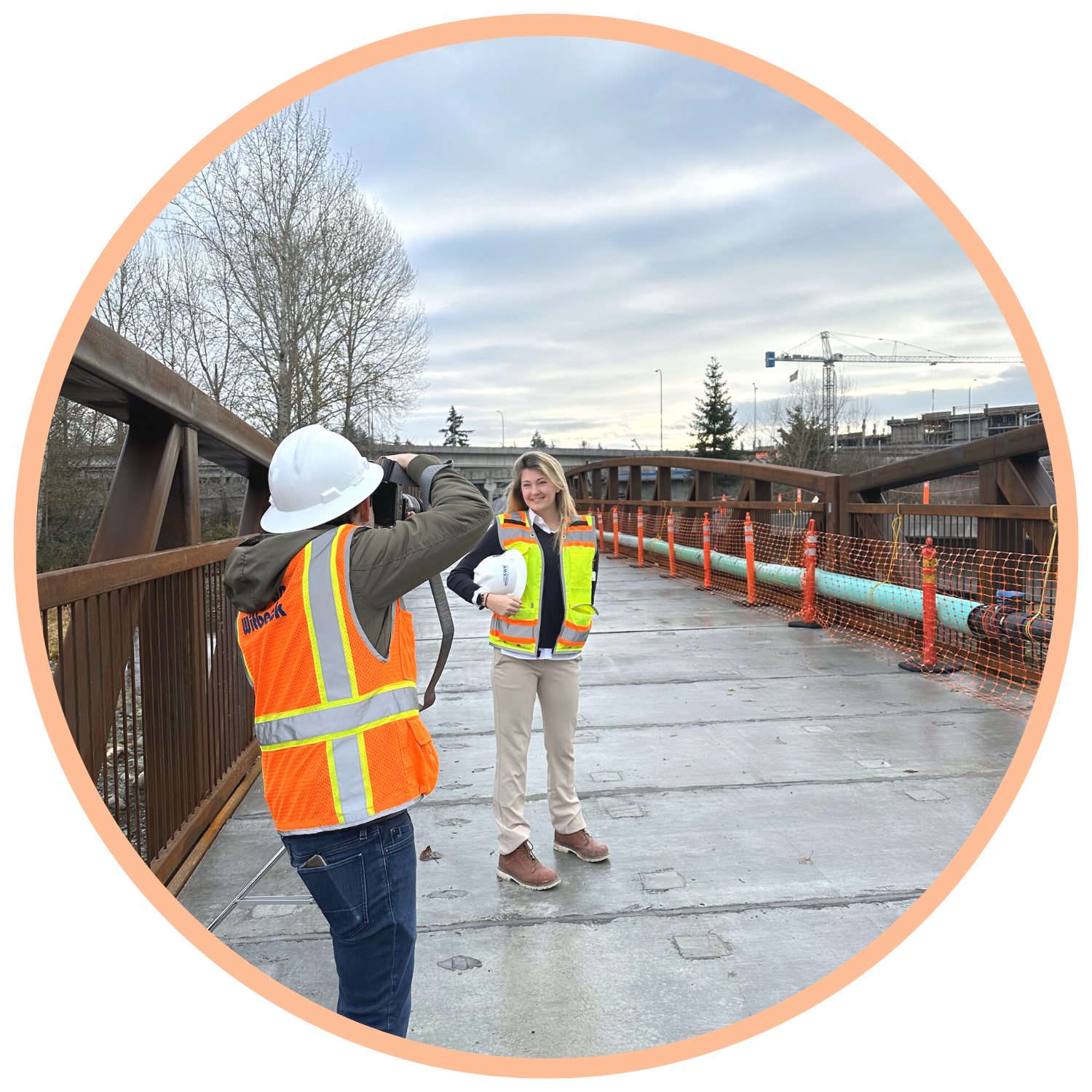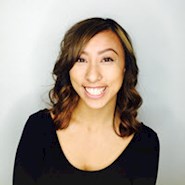

Sophie Lipomanis always knew she wanted to become an engineer. It was obvious when she was taking apart computers at 8 years old. And when understanding processes came naturally. Advanced math and complex problems just made sense to her. With the help of the Douglass Women in STEM (DSI) award-winning precollege program, Lipomanis set out to become an engineer in the hopes of making the world a better place.
Once she began studying civil engineering, things started to fall into place pretty quickly. Her involvement with ASCE skyrocketed – serving as the University of Louisville ASCE Student Chapter vice president and president, an ASCE Student Ambassador, a founding member of the ASCE Student Presidential Group, an ASCE K-12 Outreach Committee member, and much more.
Now as a civil engineer at Capital Project Management, based in New York City, Lipomanis is enacting positive change every day through her devoted engagement in the profession.
“I feel like the word volunteer is unjustly used at times because it implies that you're serving your time in a limited capacity with little impact. But it’s honestly my favorite thing to do – whether that’s helping our society or just talking to kids, getting them involved and showing interest, you never know what will stick with someone for years to come,” said Lipomanis.
ASCE has honored Lipomanis as a 2024 New Face of Civil Engineering.
She recently spoke with Civil Engineering Source about her career.

Civil Engineering Source: What is the accomplishment or aspect of your career that you are most proud of so far?
Sophie Lipomanis: As a student, I was really involved. But right around when I started getting into ASCE, I got to be a part of some things that never existed before like the Student Ambassador Program and the Student Presidential Group.
Specifically, Jean-Louis Briaud, the ASCE 2021 president, had this initial idea to kickstart how students were seen within the Society. I was working previously with the ambassadors and wanted to continue working on representing student interests to the executive community. We even tried to get voting rights for a period. So when Briaud decided to form the Student Presidential Group, I was ecstatic, excited, and super engaged, I raised my hand at every opportunity and was one of its first members. I somehow got to enter a leadership role within that group. It was an honor to be a part of and leave behind opportunities like the Student Summit. And the reason this was so important to my career, at least as a professional now that I’ve left school, is [because] I still get emails from kids all around the country asking how they can get involved. So I’ll shoot them over to various contacts within the organization. I even started an informal mentorship where I send them to the mentorship events that ASCE does.
And it's just crazy because of the legacy. You don't think about it as a student, but what you're doing as a student affects you as a professional. It opens doors and it kind of sets a standard or a foundation of how you’re going to be perceived in the professional society. So I’d say what I’m proudest of is just how involved I was with ASCE and continue to be. It’s like a gift that keeps on giving.
It's a community you join for life. I don’t know what would have happened if I didn’t join this group. When I graduated, I had so many opportunities all because of ASCE, and I eventually found my dream job through them. They gave me confidence. I'm just so grateful for everything that they do for the highest people down to the lowest, it doesn’t matter. Everyone’s goal is the same. Everyone’s trying to help everyone. We’re all trying to help the community. And everyone's passionate. It’s just so great to see.
Source: What kind of impact do you hope to make on the profession going forward?
Lipomanis: So this question has been on my mind since I was 8, when I started pursuing engineering. I was always that weird kid who would shoot my hand up every three seconds with a question and it annoyed everyone. I did that until high school. I would get called on and say, “I have a question,” which became a running joke, the girl with a thousand questions.
I realized that a lot of people have different kinds of talents. Some people are really good in the academic world. And others shine in ways just as important. Some people are out-of-the-box question askers. So I can’t really define precisely what impact I want to make in the profession. But I aspire to be a leader in my field, and not really for the sake of leading. I want to make that clear. It’s for the sake of making sure that others have space and platforms to advocate and inspire positive change. We make the world what we want it to be. And as engineers, we have a duty to society. I’m wearing my iron rings. I want to leave the world better. And hopefully, my impact on the profession is just being a champion for others to be able to reach their goals.
I feel like we’re just summations of small things that we do.
As a field engineer in Washington, we had a bunch of interns who you could tell were really excited about learning. But some were a bit lost. Some didn’t understand all their responsibilities.
So I took one under my wing. It was just a small thing, but I explained to her all the different things she could do with engineering. I told her all the different ways she could get involved. And I watched her get wide-eyed, super excited. Later, I got a letter from her for Christmas saying she was now vice president of the Society of Hispanic Professional Engineers, and it made me cry.
And it all started from a little thing. But I feel like it’s a little thing that every single person can do.
As an engineer, everyone can go find the young person at their company. They can go and talk to them. They could just show investment in their success.
Source: What sparked your initial interest in getting involved with ASCE, and what has been the most memorable thing that you’ve been a part of so far?
Lipomanis: It was the wrong place, right time. It was after I left Rutgers University as a senior – and that’s a bit of a story – but everything felt blurred. When I ended up at Louisville, something pretty traumatic and tragic happened. And I just felt like this lost puppy.
And then [I met] Mark French, professor of civil and environmental engineering at the University of Louisville. He was waiting to see if I was in his class. Turns out I was in the wrong building. I was totally messed up. I was sitting there ready with my notes, and he asked, “Hey, so are you a civil?”
And I said, “Yes, sir. I’m a civil engineer.”
“So what’s your story?”
I told him my whole story. He took a pause, and then he said, “I want you to run for vice president for my group. I’m the new faculty advisor, and I think you’re perfect.”
Then 24 hours later, I was the vice president of membership. I fell in love. Everyone was so welcoming. And it may have started as a distraction, but ever since then, I found this passion for mentoring and helping people and I've never looked back.
Because of ASCE, I had about 35 job offers after school. I could go anywhere, it was amazing. And there are just so many experiences with the organization that I hold really close to my heart.
But the first thing that pops up stems from my gratitude to the school and organization. I wanted to do something to say thank you before starting as a professional, and it’s something that I'm still part of today. My parting gift – that [I worked on] in secret for two years – was to start up the Order of the Engineer [chapter and] ceremony at Louisville.
My grandfather was a Canadian engineer. So I’m wearing his ring, and I’m wearing mine. So I petitioned the Dean’s Office. I was on the student council. I got about 400 students to sign an interest form; later the dean’s office Kari Donahue gave it the green light, and it has continued to this day.”
So we invited everyone. The first ceremony had 95 inductees with tons of people waitlisted, and it's continued to this day. It's the third year they’re going to do it now and I'm really honored that that was like a legacy. I know the university was a huge instrumental part of that.
Everyone gets really emotional. They bring their parents, and people bring flowers. They get their rings, and they swear to uphold the highest standards of engineering. And it’s all majors, not just civils, it’s bios, mechanicals, electricals. It was like my parting gift, but that’s probably the most memorable thing, emotionally, that I think I’ve done so far. More to come hopefully, but I’m proud of that one.



